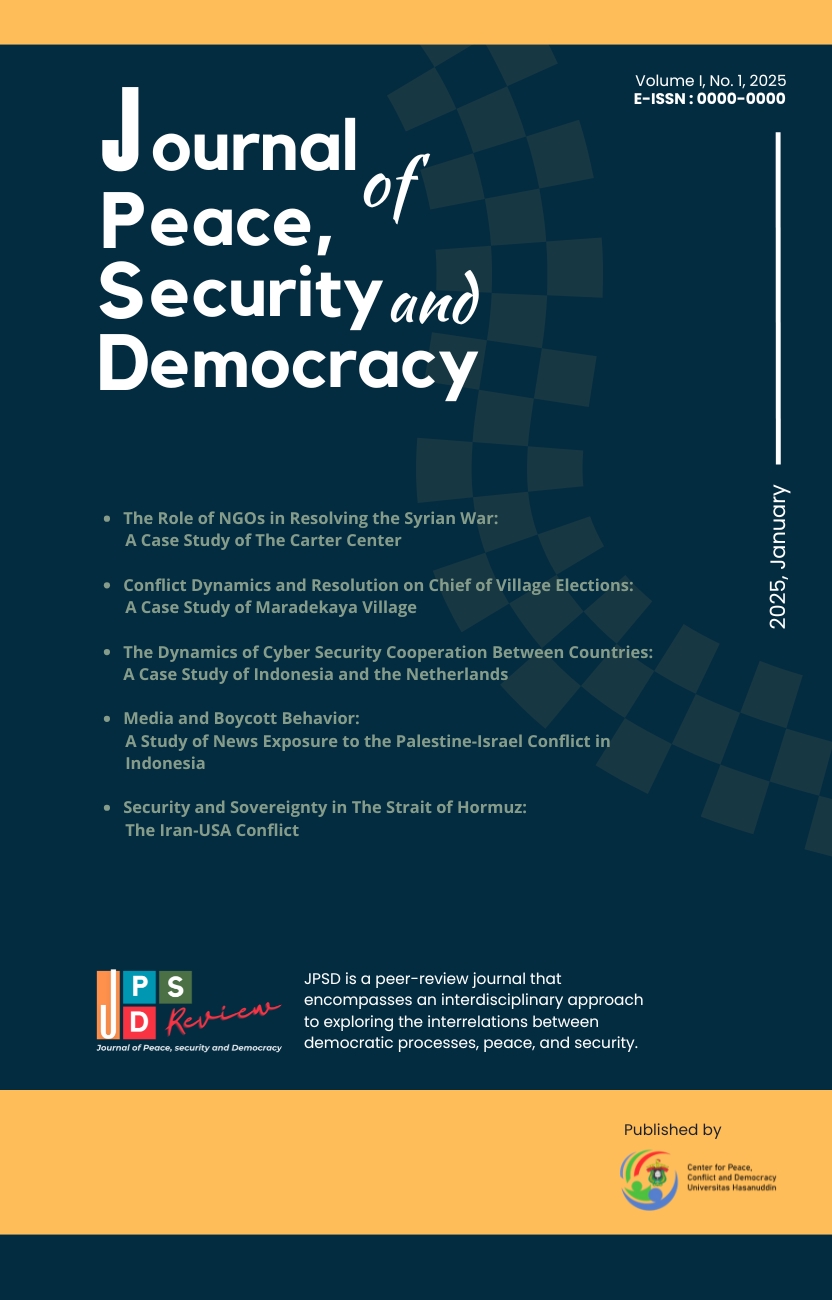Media and Boycott Behavior
A Study of News Exposure to the Palestine-Israel Conflict in Indonesia
DOI:
https://doi.org/10.63280/jpsd.v1i1.42492Keywords:
media cultivation, news exposure, boycott movement, palestine-israel conflictAbstract
The Palestinian-Israeli conflict that has been ongoing since 1948 has become a global geopolitical issue that has received widespread attention from the international media. The media plays a strategic role as the main source of information that can shape public perception. This study aims to analyze the influence of news exposure of the Palestinian-Israeli conflict on the boycott behavior of pro-Zionist products in Makassar City. Using media cultivation theory conducted with a descriptive quantitative approach on 348 respondents. The results of the regression analysis show that news exposure has a significant influence on boycott behavior with a contribution of 45.1%, while 54.9% is influenced by other factors not studied. Respondents confirmed that news content in the form of photos, videos, and text narratives increased awareness, emotions, and intensity of boycott actions. The findings confirm that the media can mobilize social action based on moral solidarity towards global humanitarian issues. This research recommends the development of more inclusive and adaptive communication policies to respond to evolving social dynamics, especially in efforts to build international solidarity through the media.
Downloads
Published
How to Cite
License
Copyright (c) 2025 Nur Qalby, Andi Alimuddin Unde

This work is licensed under a Creative Commons Attribution-NonCommercial-ShareAlike 4.0 International License.












